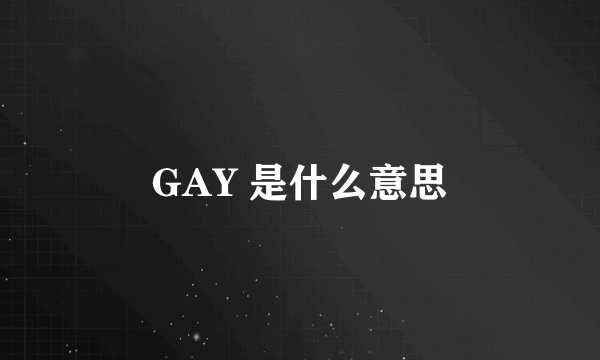谁知道Gay是什么东西?
的有关信息介绍如下:
1 快乐的,愉快的
2 鲜艳的
3 同性恋的(一般指男性)
选哪种由你.
送你一个 LES=女性同性恋
GAY不是你所谓的“东西”。
现在比较通俗的含义是指同性恋人群(多指男性)
男性之间同性恋
一般指男同性恋。
呵呵 用词是有点不恰当 不是“东西”。
gay
AHD: [g³]
D.J. [ge!]
K.K. [ge]
adj.(形容词) gay.er,gay.est
1. Showing or characterized by cheerfulness and lighthearted excitement; merry.
快乐的,愉快的:表现出欢乐的、愉快的激动的,或具有其特征的;高兴的
2. Bright or lively, especially in color:
色彩鲜活的:明亮的或怡人的,尤指颜色:
a gay, sunny room.
一间明快的、充满阳光的房间
3. Of, relating to, or sharing the lifestyle and concerns of the homosexual community.
同性恋的:有关或与同性恋者的生活方式或问题有联系的,具有同性恋者的生活方式的
4. Homosexual.
同性恋的
5. Given to social pleasures.
好寻欢作乐的
6. Dissolute; licentious.
放荡的;无法无天的
n.(名词)
A gay person, especially an openly gay person in contemporary society.
活跃的人:快乐的,尤指当代社会中的思想开放的人
语源:
1. Middle English gai
中古英语 gai
2. from Old French
源自 古法语
3. [possibly of Germanic origin]
[可能源于日耳曼语的]
继承用法:
gay“ness
n.(名词)
用法:
The wordgay is now standard in its use to refer to the American homosexual community and its members;in this use it is generally lowercased.Gay is distinguished from homosexual in emphasizing the cultural and social aspects of homosexuality.Many writers reservegay for male homosexuals, but the word is also used to refer to homosexuals of both sexes;when the intended meaning is not clear in the context,the phrasegay and lesbian should be used. Like the other names of social groups that are derived from adjectives (e.g.,Black ), gay may be regarded as offensive when used as a noun to refer to particular individuals, as inThere were two gays on the panel; here a phrase such asgay people should be used instead. But there is no objection to the use of the noun in the pluralto refer to the general gay community,as inGays have united in opposition to the policy. See Usage Note at homosexual
单词gay 其用法已被普遍接受, 指的是美国的同性恋团体及其成员;在这种用法中,它一般小写。Gay 区别于 homosexual, 前者强调同性恋者的文化和社会方面。许多作家把gay 限定于男性同性恋者, 但这个单词也可用于指两种性别的同性恋者,当上下文的言外之意不太明确时,词组同性恋男性和同性恋女性 可以被使用。 就象其他从形容词派生来的社会群体名词一样(如,黑人 ), gay 如果当作为一个名词使用,指一些特殊的个体时,可能会被认为带有攻击性, 如在There were two gays on the panel; 在此处应该用词组gay people 来代替。 但是并没有人反对其名词的复数形式,指一般的同性恋团体,如句子同性恋者们已经团结起来对抗政策 参见 homosexual



